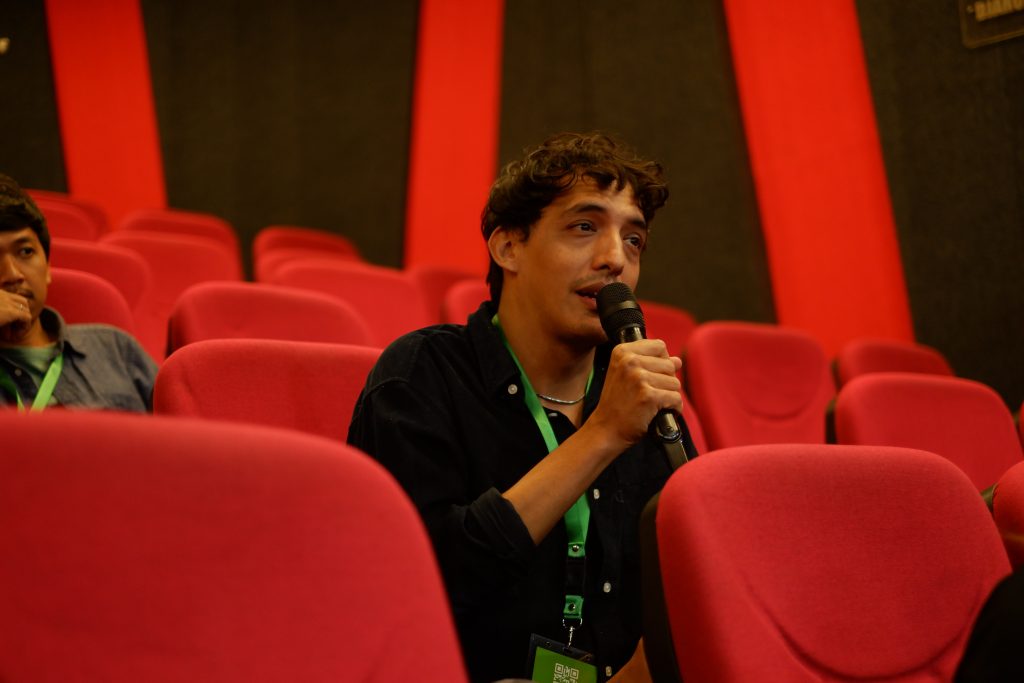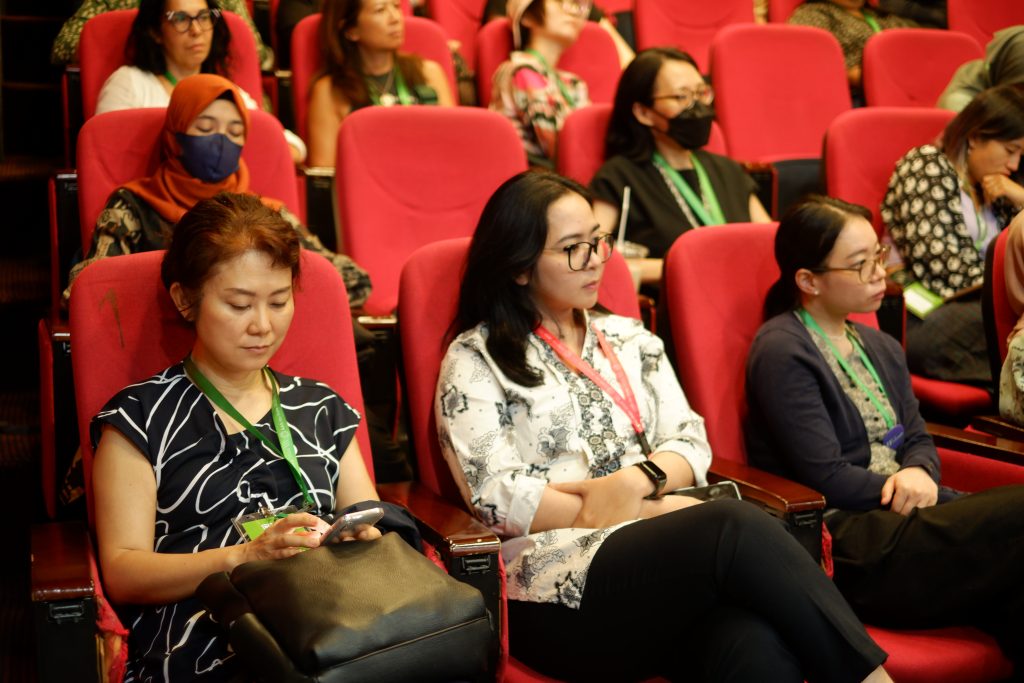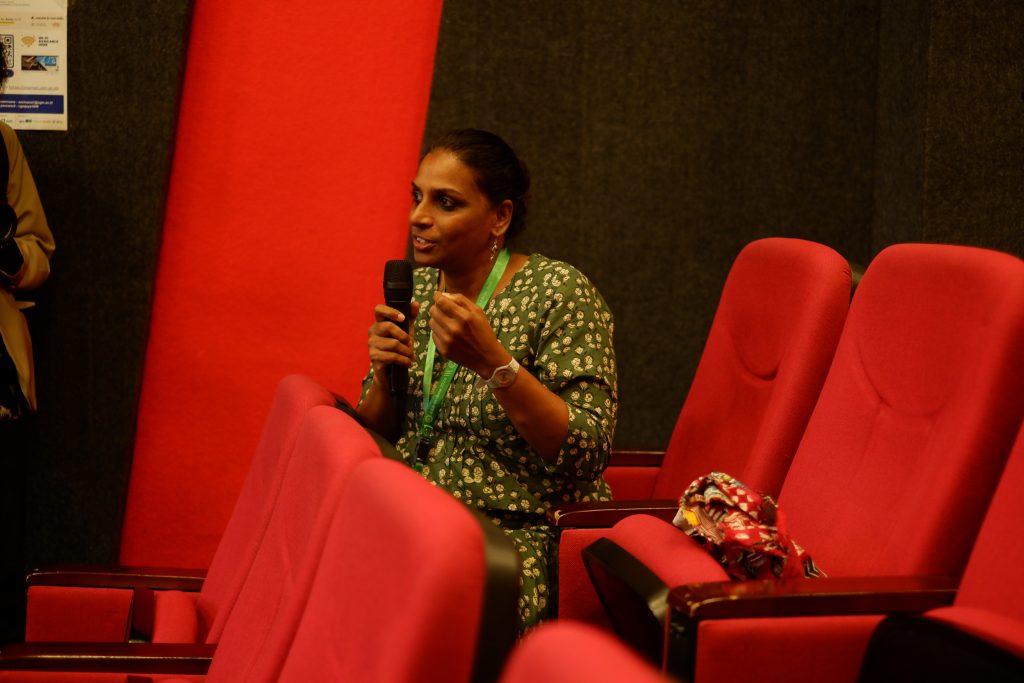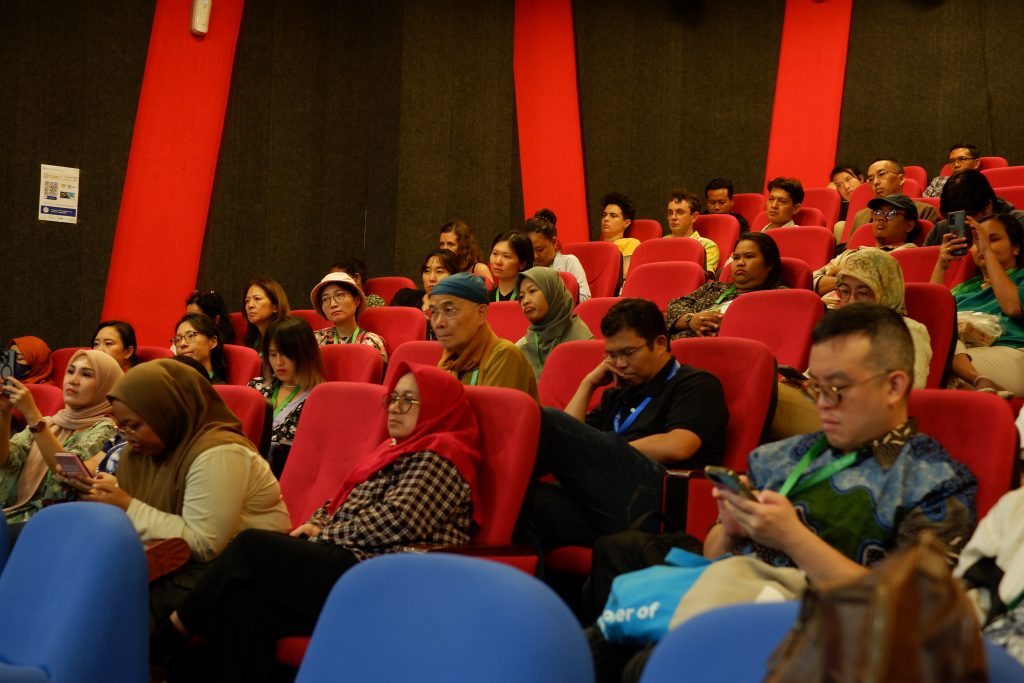
“Films have such a wide reachability. It can be screened in discussion rooms, festivals, and reach many people. I use that perspective to choose and raise issues that concern me,” said Tonny Trimarsanto at the AAS-in-Asia 2024 event held at Gadjah Mada University, Yogyakarta. Tonny is a documentary director who won the 2017 Piala Citra for best feature-length documentary for his film, Eyelashes (2015). On the third day of AAS-in-Asia (11/07), one of his films titled Someday (2021) was screened in a special screening and discussion program titled “Documenting Differences, Voicing Hopes”.
In this special program, Someday (2021) was screened together with a short animated documentary Annah La Javanaise (2020) directed by Fatimah Tobing Rony. Someday (2021) is a documentary about the life of a disabled and HIV/AIDS survivor transwoman from Bandung named Farah who is active in advocating and assisting fellow street transwomen. Meanwhile, Annah La Javanaise (2020) tells the story of a Javanese woman named Annah who was sold by her parents to France and later became the slave of a French artist named Paul Gauguin. Through the special screening program, AAS-in-Asia 2024 hopes to open a space for constructive discussions on the issues represented in the film, namely transgender issues, minorities, othering, and equality.

The screening ended with a discussion accompanied by producer and director Nia Dinata, Universitas Gadjah Mada (UGM) lecturer and film scholar Budi Irawanto, and UGM Anthropology lecturer Suzie Handajani. In the discussion session, Budi outlined a brief analysis of important scenes that resonate with the issues presented in the films. He said, “In Annah La Javanaise, the scene of Annah’s meeting with the white girl is important, because the white girl’s gaze shows the disrespect towards Annah as non-white.”. Meanwhile, as a filmmaker who sympathizes with transwomen, Tonny revealed his reasons for highlighting transwomen’s issues in his films to the extent that he was called the ‘Director specializing in transwomen’. He said, “The problems faced by transgender people are never finished, so it is important for us to keep reminding each other about it.”
Being an Ally for Minority Groups
Although they often raise minority issues on their works, Tonny and Nia recognize their positionality as heterosexuals who are the majority. However, as a producer, Nia has also often collaborated with filmmakers from LGBTQ (Lesbian, Gay Bisexual, Transgender, and Queer) community. According to Nia, it is very important to know the issues they face directly from their own perspective. This is in line with Budi Irawanto’s view when discussing the issue of Asian representation in the global film industry, because basically ‘othering’ can occur in various minority issues, ranging from gender, sexual orientation, disability, to racism. “In the global film industry, Asia is often represented stereotypically, so the best way to represent Asia is through the perspective of Asians themselves,” said Budi.

However, Tonny and Nia recognize that minority groups often do not have a safe enough space to speak out, so the presence of allies is important for them. In minority matters, the term “ally” describes people from majority groups who sympathize with and get along with minorities. Tonny and Nia’s work in filmmaking is a tangible manifestation of the importance of allies in raising minority issues so that they can embrace more allies, although, of course, there are consequences they must face. Tonny considers his nickname “transwomen specialist documentary director” as a form of appreciation, while Nia often receives negative comments from netizens every time her films are released. “They bully me just because I’m an ally, but I don’t care. I don’t give any room to them,” she says.
To be a good ally, Nia says that we can’t only care about one minority issue and ignore others. That is why, as a woman, she cannot only care about women’s issues. “If we believe in women’s issues, we believe in human issues. We also have to believe in LGBT issues because they’re human too. You can’t choose to defend only women. No. If you want to defend women and children, you have to defend other minority groups as well. Therefore, in my life, I strive to be consistent in doing my job,” she says.

Author: Asmi Nur Aisyah
Photos: Leonardo Yudha & Mukhammad Aziz
SDG 5 (gender equality)
